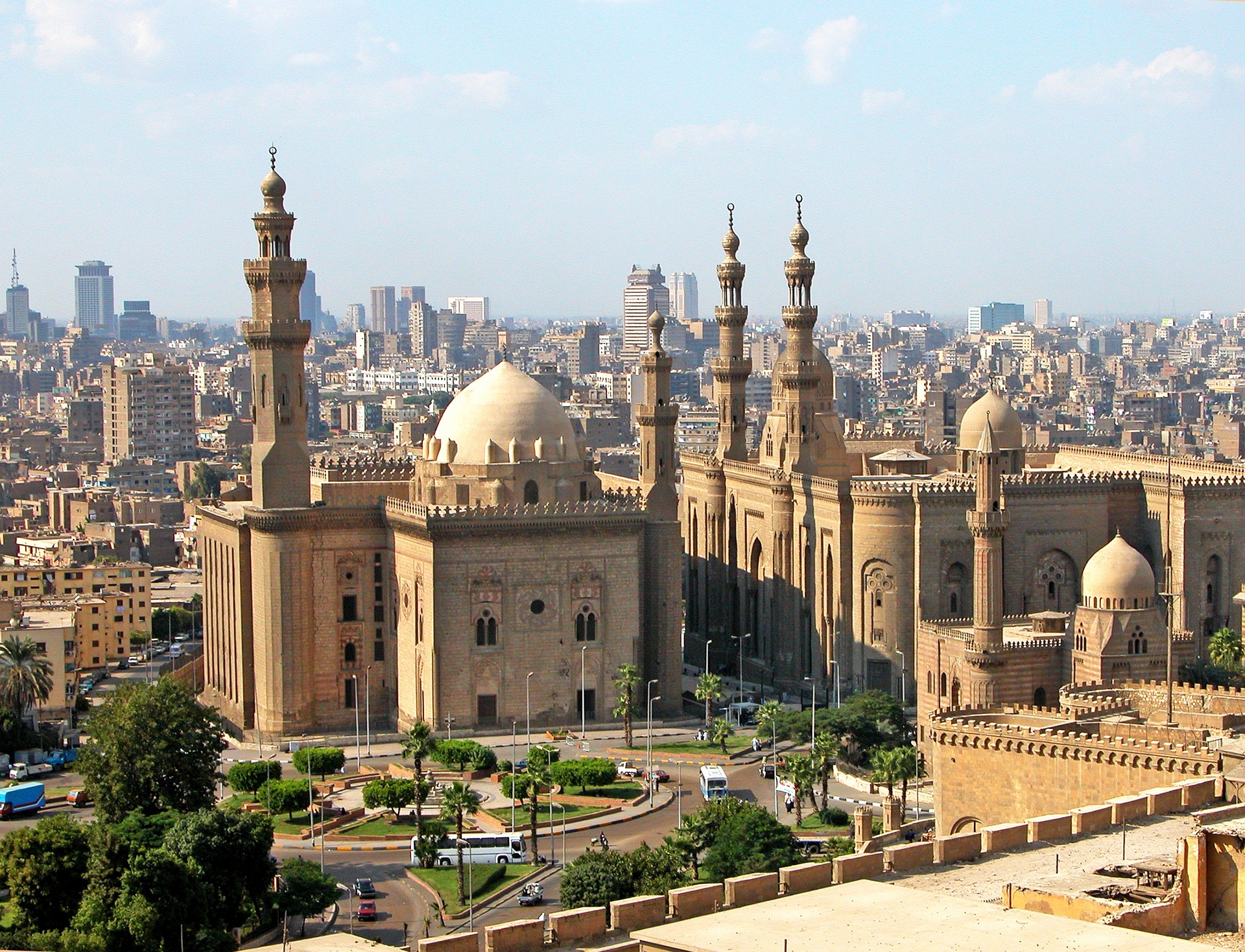
table of contents
Basic information about Egypt
Egypt is located in the northeastern corner of Africa. 95% of the country is desert, and most of the cities and population are concentrated around the Nile River. From Japan, the image of Egypt is strong as a tourist destination with pyramids and the Sphinx, but this time we will tell you about Egypt from a trade perspective along with basic data.
Basic data
-Official name: Arab Republic of Egypt
- Population: 103,433,429 (as of June 8, 2022) *The most populous country in North Africa and the Middle East.
・Area: 1,001,450 km2 *29th in the world. 2.65 times the size of Japan.
・Capital: Cairo
・Language: Arabic, English is widely spoken in urban areas
Ethnic groups: Mainly Arabs (with a small number of Nubians, Armenians, Greeks, etc.)
Religion: Islam, Christianity (Coptic)
Major industries: manufacturing (16%), small and medium-sized banks and wholesalers (14%), fisheries (11%), real estate (10%)
(Textiles, food processing, tourism, chemicals, pharmaceuticals, hydrocarbons, construction, cement, etc.)
- Nominal GDP total: $435.621 billion in 2021, 35th in the world and 3rd in Africa
・Nominal GDP per capita: $4,162 in 2021 (121st in the world)
There is a lot of talk about population growth in many African countries, and Egypt is one of them. There are so many people in the capital, Cairo, that houses cannot be expanded, and there are even people who have put roofs on the cemeteries that have been arranged in a designated area and are living there. The city is also known as the "City of the Dead."
Trade situation with Japan
Exports to Egypt are thriving, with total exports last year exceeding $1 billion, a relatively high figure for Japan's trade with Africa.
・Japan's exports: $1.093 billion
Japan's major export items: Transportation equipment (37.5%), general machinery (28.6%), raw material products (11.8%)
・Japan's imports: $319 million
Japan's main imports: Mineral fuels (79.5%), food (8.1%)
Additionally, there are relatively few Japanese people active locally, with only 49 Japanese corporate bases and 719 Japanese residents (as of October 1, 2020).
Export procedures for goods to Egypt
Egypt has relatively strict regulations on imports, so care must be taken. For items that are subject to quality inspections under the export and import law, prior approval from the Export and Import Control Agency is required.
In addition, for import customs clearance of shipped cargo, exporters and importers to Egypt must declare cargo information in advance. Here are some points to keep in mind.
Import Restrictions
The import of the following items has been suspended:
・Consumer goods with marks that offend religious sentiments
・Poultry offal
・Bird/poultry liver
- Double-stroke bikes without an oil jet pump
・Asbestos-related products
・Asbestos brake linings
- Tuna made with genetically engineered oil
- Pesticides and chemical products (368 items)
- Toy guns with hard beads and arrows (added to the list in 2009)
- Incandescent bulbs over 40 watts using 100-250 volts AC power*(HS Code: 85392290, 85392900) (Added to the list in 2012 and 2014)
Quantum pendants, bracelets, necklaces, and other items imported under the name "regulation of body energy" and claiming to relieve muscle tension, relieve joint pain, promote deep sleep, or protect the human body from electromagnetic waves from mobile phones, etc. (Added to the list in 2013)
Advance declaration of import cargo information
Under the online pre-declaration system for import cargo information that came into operation in October 2021, pre-declaration online is now mandatory when exporting goods to Egypt.
Egyptian importer
Register with "Nafeza". ACID number must be issued for each import.
*Nafeza: A platform for importers that unifies procedures with customs, regulatory authorities, importers, etc.
Exporters to Egypt
Register with CargoX. For each export, you will be required to enter cargo information, submit a document stating the ACID number issued by the importer online, and pay a processing fee.
*CargoX: A platform for exporters. Declarations to CargoX are linked to Nafeza.
Quality inspection based on import and export laws
Items that require quality inspection upon import into Egypt must meet the following conditions:
Machinery and equipment
The country of origin must be inscribed on the product and its packaging in Arabic, English, or French.
Processed poultry, chicken and meat
- The goods must be shipped directly from the country of origin to Egypt.
- Products must meet hygiene standards and be properly packaged.
Each package must be labeled with the following information in Arabic:
└ Country of Origin
└ Producer name
└ Name of slaughterhouse
└ Processing date
└ Name and address of the exporter
└ Name of the organization that supervised the processing based on Sharia (Islamic law) (approved by the Ministry of Commerce of the country of origin)
Clothing, furniture, carpets, textiles, kilims (excluding socks for medical and industrial safety use)
The following information must be sewn into each product in Arabic:
└ Fabric type
└ Country of Origin
└ Importer Name
[Foreign Factories/Companies] Pre-registration with the Egyptian Import and Export Authority is mandatory
Foreign factories and companies that wish to export items that fall under one of the 25 categories specified in the ministerial ordinance, including food, home appliances, and household goods, to Egypt are required to register the factory or company in advance with the Egyptian Import and Export Authority.
[Food Export] Pre-shipment inspection certificate
To ensure food safety and quality, food importers (individuals and corporate entities) require a license from the National Food Safety Authority (NFSA) to commence import operations.
Required documents for customs clearance
The following items are required for customs clearance:
·bill of lading
Invoice
Packing list
・Certificate of Origin
Summary of Egyptian trade and export basics
Egypt is one of the most notable countries in Africa, known as the "final frontier." The International Monetary Fund (IMF) has predicted that the country's economic growth rate in 2022 will be 5.21 TP3T. With the country expected to achieve positive growth for the third consecutive year, attention is focused on future trends. We also introduce other countries on this site, so please take a look.
category:African export business
Related articles
-

Basic information on Moroccan trade and exports (overview and basic statistics)
-

Basic information on Algerian trade and exports (overview and basic statistics)
-

Basic information on trade and exports in Côte d'Ivoire (overview and basic statistics)
-

Basic information on Ethiopian trade and exports (overview and basic statistics)
-

Basic information on Ghana's trade and exports (overview and basic statistics)
-

Business opportunities in Africa! Advantages and disadvantages of expanding into Africa